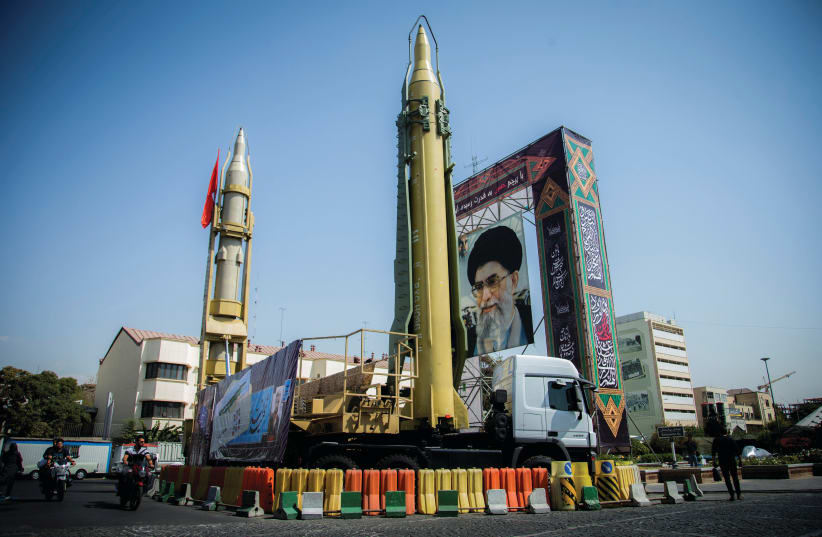Iran has more than 3,000 ballistic missiles, many of which can reach the State of Israel, commander of the United States Central Command Gen. Kenneth McKenzie said on Tuesday.
McKenzie, who is retiring from the military soon, was in Israel last week and held talks with Prime Minister Naftali Bennett, Defense Minister Benny Gantz and IDF Chief of Staff Lt.-Gen. Aviv Kohavi.
“At a military level my concern is first of all that they do not have a nuclear weapon but I am also very concerned about the remarkable growth and efficiency of their ballistic missile program,” McKenzie told the Senate Armed Services Committee.
"They have over 3,000 missiles of various types, some of which can reach Tel Aviv," McKenzie said in response to a query by the senate committee. "None of them can reach Europe yet."
In Mckenzie's written statement, he called Iran’s missile force the greatest threat to the region’s security, and that Iran has developed an arsenal of nuclear-warhead capable ballistic missiles and has tested these weapon platforms multiple times. He told the committee that over the last 5-7 years Iran has invested heavily in its ballistic missile program.
US CENTCOM assessed in the prewritten statement that Syria and Iraq will continue to be used as supply routes and hubs to forward its "campaign against Israel." This is in part to arm its proxy in Lebanon, Hezbollah. It was estimated last year that Hezbollah has 130,000-150,000 rockets that can reach deep into Israeli territory. This arms stockpile also includes Iranian ballistic missiles.
Iran has armed its proxy in Yemen, the Houthi rebels, with drones and ballistic and cruise missiles, the general wrote. The Houthis have also expressed hostility toward Israel, and have previously said that they have joined the "anti-Israel" front. They have also used these missiles and drones to attack the UAE and Saudi Arabia.
McKenzie also expressed concern about Iran's drone program. Iran's drone fleet has evolved from "commercial off-the-shelf" UAVs to drones that resemble cruise missiles in terms of increased speed, range, accuracy, resistants to electronic warfare, and warhead weight, he assessed in his statement. Iran has also been able to mass-produce the drone components, allowing them to be supplied with greater ease to the Islamic Republic's proxy network.
Also in prepared remarks to the committee, McKenzie said that the transfer of Israel to CENTCOM two years ago “opens the doors to numerous strategic opportunities—including by enabling CENTCOM to more closely align our regional partners against common threats, such as those posed by Tehran.”
He said that the US remains steadfast in its commitment to Israel’s security and to support Israel’s right to defend itself, and “CENTCOM will continue to support the expansion of Israel’s military ties with regional counterparts through training, joint exercises, and other defense cooperation efforts.”
